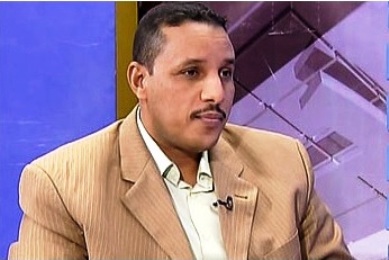Sudan’s NCP describes dialogue as “reform revolution”
November 27, 2015 (KOSTI/KHARTOUM) – Political secretary of Sudan’s ruling National Congress Party (NCP), Hamid Mumtaz has described the ongoing national dialogue as “societal and political reform revolution”.

Mumtaz who spoke at a forum on the national dialogue in Kosti twon of the White Nile state, Friday described the dialogue as “political and societal revolution that is based upon convictions of the Sudanese people”, calling on holdout opposition to join the process.
He stressed the outcome of the dialogue a national document that “expresses our hopes and aspirations and determines how Sudan should be governed”, attributing failure of the recent talks with the rebels to lack of desire and seriousness on the latter’s side.
“Leaders [of the rebel umbrella Sudan Revolutionary Front (SRF)] turned into war dealers who suffer from political and social isolation,” he said
On Monday, the African mediation suspended the latest round of talks between the Sudanese government and rebel delegations on a cessation of hostilities and humanitarian access in South Kordofan and Blue Nile states, and Darfur region as no progress was made on the different pending issues.
NCP official stressed the dialogue would lead to a political transformation in the country, saying its success depends on the will of the people.
For his part, the political secretary of the Popular Congress Party (PCP), Kamal Omer, described the national dialogue as the biggest political scheme in Sudan’s history, saying it is based on the principles and values of the religion (Islam) and the Sudanese society.
He renewed refusal for holding the dialogue preparatory meeting, saying “we want a Sudanese dialogue without any intervention from foreign parties”.
It is noteworthy that the head of the African mediation Thabo Mbeki announced that a preparatory meeting for the national dialogue conference including the dialogue body known as 7+7, SRF and the National Umma Party (NUP) is scheduled for the 7th December in Addis Ababa.
Omer pointed to several measures taken to create a conducive climate for holding the dialogue including granting amnesty to rebel leaders participating in the dialogue and declaring a two-month cessation of hostilities besides allowing press freedoms.
The secretary general of the Umma Party for Reform and Development (UPRD) Adam Ibrahim, for his part, described the national dialogue as “unique phenomenon in Sudan’s history”, saying it is comprehensive, transparent and binding.
The representative of the Liberation and Justice Party (LJP) Tag al-Din Niyam said the dialogue seeks to reach consensus among Sudanese people on national principles which serve issues of peace and stability.
He underscored that the majority of the Sudanese people support the dialogue despite refusal of some political forces and armed movements to participate in it, saying the dialogue is based upon credibility and aims to unify the Sudanese.
Meanwhile, the chairman of the Federal Truth Party (FTP) Fadl al-Sid Shuaib called for the need for concerted efforts to ensure the success of the dialogue conference, saying its outcome should lead to security, stability, permanent peace and development.
Shuaib, who addressed a youths crowed in Khartoum north Friday, added that war has hindered development and contributed to the economic and security deterioration, stressing that issues being discussed in the dialogue covers all differing points among the various political forces.
The representative of the Justice and Equality Movement (JEM-Dabajo) Abdel-Rahman Banat, said they are convinced that dialogue is the only means to resolve all differences, calling on holdout opposition to take part in the dialogue conference.
He stressed that dialogue issues including national unity, identity and equitable development constitute the bases for governance in the coming period.
(ST)
